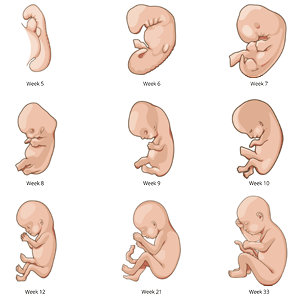Alabama Supreme Court allows wrongful death claim for miscarriage of previable fetus

The Alabama Supreme Court is allowing a woman to sue a doctor for the wrongful death of her embryo after suffering a miscarriage in her first trimester.
The unanimous court ruled (PDF) on behalf of the woman, Kimberly Stinnett, in a Jan. 6 decision, report AL.com and a press release by Liberty Counsel.
The state supreme court cited a state homicide law that defines “person” to include a fetus, regardless of viability. The law allows criminal prosecutions based on death of a fetus, though it gives doctors immunity from criminal prosecution for “a mistake or unintentional error” that results in the death of a fetus.
The court said it’s fair to subject wrongdoers to both criminal and civil liability for fetal homicide. A negligent wrongdoer should face civil liability, even though that person couldn’t be prosecuted, the court said.
In a special concurrence, Justice Tom Parker criticized the viability standard in Roe v. Wade. “The fact that life begins at conception is beyond refutation,” he wrote. “Unborn children, whether they have reached the ability to survive outside their mother’s womb or not, are human beings and thus persons entitled to the protections of the law—both civil and criminal.”
Stinnett had alleged she was about six weeks pregnant when she went to the emergency room in May 2012 for abdominal cramping and fever. Concerned about a possible ectopic pregnancy, since Stinnett had experienced one ectopic pregnancy and two miscarriages previously, the doctor prescribed a drug to end the pregnancy. Stinnett’s regular doctor took over the case and found the pregnancy was not ectopic, but described it as a “failing intrauterine pregnancy.” Stinnett had a miscarriage a month after her release from the hospital.


